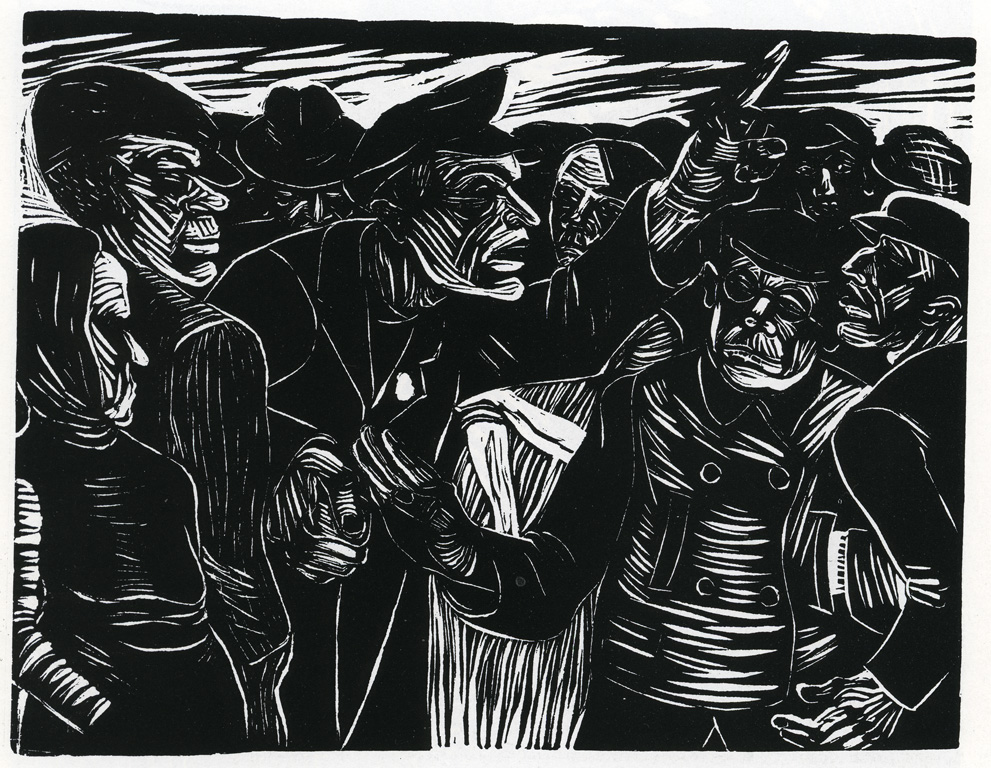

Flight or Fight. stories of artists under repression
Jewish Identity and Communist Belief.
Lea Grundig’s Path from Dresden to Palestine and back to Dresden
Lecture by Eckhart Gillen, Berlin
August 5, 2020 @ 3:00 pm - 4:00 pm
| FreeWatch the video of this event HERE
Lecture featuring
Eckhart Gillen, Independent Curator based in Berlin, Germany
Moderated by
Rachel Stern, Executive Director of the Fritz Ascher Society in New York
The lecture tells how the daughter of the Jewish clothing and furniture retailer Moritz Langer leaves her family’s Orthodox milieu to study at the Dresden Art Academy. There she meets art student Hans Grundig. With him she joined the German Communist Party in 1926. From now on she wanted to put her art at the service of the working class.
After returning from exile in Palestine, she used her art for the newly founded GDR. There she had a career as a professor and as president of the Association of Fine Artists of the GDR. In this function, she unconditionally served the official art policy of the SED and also supported the “anti-Zionist” anti-Semitic policies of the GDR.
But the communist Lea Grundig is only one aspect of her life and work. The accusation of being a degenerate artist in the sense of Nazi terminology and the prohibition of pictures and memories of the genocide of the Jews became a test for the loyalty of the faithful communist and self-confident Jew Lea Grundig.
Eckhart Gillen, Art Historian, Independent Curator, born 1947 in Karlsruhe, Germany, based in Berlin. Study of art history, German and Sociology at the University of Heidelberg, where he received the Doctorate from the Faculty of Philosophy. He has organized numerous exhibitions and published widely on Russian, American, and German art of thetwentieth century. Among his exhibition catalogs and books are „Amerika –Traum und Depression 1920/40“, Akademie der Künste, Berlin 1980; „German Art from Beckmann to Richter: Images of a Divided Country“; Yale University Press 1997; „Art of Two Germanys/Cold War Cultures 1945-1989“, LACMA, L.A., Germanisches Nationalmuseum Nuremberg, Deutsches Historisches Museum Berlin 2009 (in collaboration with Stephanie Barron); „Feindliche Brüder? Der Kalte Krieg und die deutsche Kunst 1945-1989“, Berlin 2009; R.B.Kitaj – The Retrospective, 2012, Jewish Museum Berlin, Jewish Museum London and Hamburger Kunsthalle; Art in Europe 1945-1968: Facing the Future, BOZAR, Brussels, ZKM, Karlsruhe, Pushkin Museum, Moscow, 2016/17; „FLASHES OF THE FUTURE. The Art of the 68ers“, Ludwig Forum, Aachen, 2018; „Constructing the World. Art and Economy 1919 to 1939 in USA, Soviet Union and Germany“ in the Kunsthalle Mannheim, 2018/19.
Numerous distinctions, including „einheitspreis – Bürgerpreis zur deutschen Einheit“ 2003 (bestowed by the Federal Agency for Civic Education), AICA-USA 2009 for Best Thematic Museum Show, and the Friedlieb Ferdinand Runge Award 2011 conferred by the foundation Preußische Seehandlung for unconventional art communication (together with Stefanie Barron). Adjunct professor for art history at the Film University in Potsdam-Babelsberg since 2011.
The event is part of our monthly series
Flight or Fight. stories of artists under repression
Sponsored by Allianz Partners.
Jüdische Identität und kommunistischer Glaube
Lea Grundigs Weg von Dresden nach Palästina und zurück nach Dresden
Der Vortrag erzählt, wie die Tochter des jüdischen Kleider- und Möbelhändlers Moritz Langer das orthodoxe Milieu ihrer Familie verlässt, um an der Kunstakademie Dresden zu studieren. Dort trifft sie den Kunststudenten Hans Grundig. Mit ihm tritt sie 1926 in die Kommunistische Partei Deutschlands ein. Sie wollte von nun an ihre Kunst in den Dienst der Arbeiterklasse stellen.
Nach Rückkehr aus dem Exil in Palästina setzt sie ihre Kunst für die neu gegründeten DDR ein. Dort macht sie Karriere als Professorin und als Präsidentin des Verbandes Bildender Künstler der DDR. In dieser Funktion diente sie bedingungslos der offiziellen Kunstpolitik der SED und unterstützte auch die „antizionistische“ in Wahrheit antisemitische Politik der DDR.
Doch die Kommunistin Lea Grundig ist nur ein Aspekt ihres Lebens und Werkes. Der Vorwurf, eine entartete Künstlerin im Sinne der Nazi-Terminologie zu sein und das Bilder- und Erinnerungsverbot an den Völkermord an den Juden wurde für die Loyalität der gläubigen Kommunistin und selbstbewußten Jüdin Lea Grundig zu einer Zerreißprobe.


